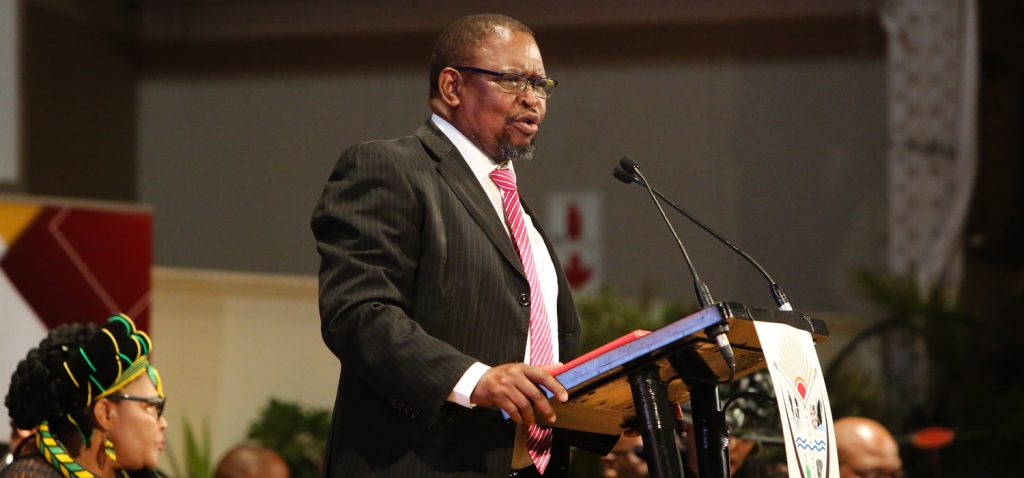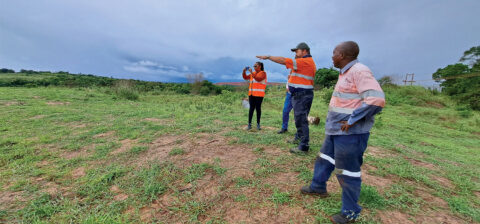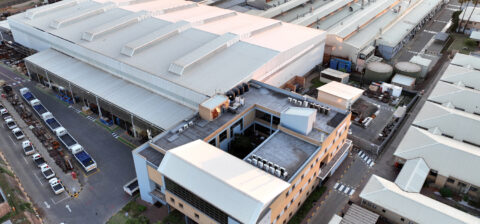SA Mining PR
Minerals Council
The Minerals Council welcomes Minister Godongwana’s maiden medium term budget policy statement (MTBPS). The country requires continued focus on stabilising the nation’s public finances and, most importantly, the critical need to implement more aggressive structural and institutional reforms that can drive up investment and inclusive growth in the economy. It is the Minerals Council’s view that Minister Godongwana delivered on these critical issues.
Now, more than ever, South Africa needs to bring its debt under control and initiate long-awaited structural reforms to encourage greater private sector participation in core segments of the economy and spur critical economic growth and job creation.
The MTBS delivered by Minister Godongwana showed the alarming seven-fold growth in national debt to R4 trillion from R577 million in 2007/08. This incurs interest payments of R334.5 billion – or 21 cents in each rand of collected revenue – a year, which is more than spending on health, social development, peace and security services.
Debt to GDP is forecast to stabilise at 78%, which is lower than earlier forecasts. The budget deficit will come down from 7.8% of GDP to below 5%, which is a welcome development. The primary deficit of R318bn this year is expected to be cleared by the end of 2024/25.
“Minister Godongwana’s speech clearly articulated the MTBPS focus on stabilising the nation’s public finances, reducing fiscal deficits and public sector debt. The specific focus on reducing and eliminating wasteful bailouts of state-owned enterprises, and the focus on inclusive growth and competitiveness, and the implementation of critical structural reforms to allow greater private-sector participation and investment in network industries is a welcome and refreshing step,” says Minerals Council CEO Roger Baxter.
Mining, as one of two primary sectors of the economy along with agriculture, was the primary driver of the 44% improvement in provisional income tax year-on-year in the first half of the 2021/22 fiscal year. Of the R120 billion better-than-expected tax revenues for the fiscal year, 85% came from the mining sector.
“The leadership cooperation between the Minerals Council, the Department of Mineral Resources and Energy, and organised labour helped the mining sector get back to work after the national lockdown at the beginning of 2020, with all the right preventative and mitigating controls in place thus saving lives and livelihoods in one of the most important economic sectors in the country,” says Baxter.
“The MTBPS reiterates the Treasury’s commitment to follow a fiscal stabilisation path towards reducing the fiscal deficit and stabilising government debt. This alone is a significant structural reform,” he says.
Minister Godongwana said faster-than-expected first half economic growth was expected to wane in the second half because of unreliable electricity supply and disruptions to rail and port operations.
The Minerals Council reiterates its calls for urgent and tangible structural reforms to open private sector participation and investment in network industries, and to implement investor-friendly regulations to address record-high joblessness (44% in the expanded definition) and to encourage investment and economic growth. It is the Minerals Council’s view that much greater private-sector investment in network industries such as electricity, rail and ports will drastically increase the potential growth rate of the country.
“We cannot solve any of the country’s economic or social problems without inclusive economic growth at much higher levels for a sustained period of at least a decade. To achieve much higher growth rates requires much higher levels of fixed investment by the private sector. But the private sector can only invest if a much more competitive investment framework is developed and if the network industries are opened to private sector competition and investment. This requires difficult political choices on critical structural and institutional reforms,” Baxter says.
Incentives to enhance faster private and public sector electricity generation capacity will alleviate South Africa’s destructive power shortages, so Minister Godongwana’s commitment to diversifying energy generation and developing a competitive energy market are all steps in the right direction.
The Minerals Council welcomes Minister Godongwana’s comment that Transnet Freight Rail, one of the major bottlenecks curtailing exports of bulk minerals, will be opened to third-party access of its rail network by the end of 2022. This would improve volumes and capacity on the Africa’s largest rail network, he says. His statement about addressing the capacity constraints at border posts is particularly welcomed in the light of constraints on chrome and magnetite exports through Maputo.
The Minister’s focus on providing additional resources to fight crime is also important given the impact of crime not only on the mining sector, but also on Transnet which has disrupted bulk commodity exports.
The Minerals Council estimates that the opportunity cost of rail and port constraints to be about R30 billion so far this year, which has fed through to less-than-optimal revenues for mining companies and reduced taxes for the government.





